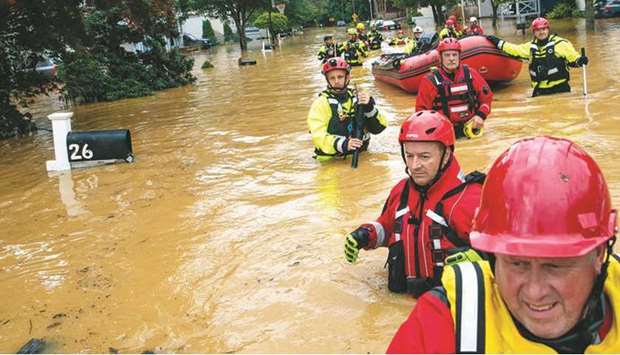Tropical Storm Henri was downgraded to a tropical depression late Sunday after slamming into Rhode Island on the US east coast, knocking out power to thousands of Americans, uprooting trees, and bringing record rainfall.
The storm hit land near the town of Westerly, Rhode Island, at approximately 12:15pm, the National Weather Service said. Henri had already been downgraded from a Category 1 Hurricane earlier on Sunday.
But the National Hurricane Center (NHC) said in its 5am advisory that Henri was “nearly stationary” and winds had reduced to 30 miles per hour (48km per hour) — much lower than predicted gusts of 75mph — with “little change in strength” forecast.
Henri is a rare tropical storm to strike America’s northeastern seaboard and comes as the surface layer of oceans warms due to climate change.
The warming is causing cyclones to become more powerful and carry more water, posing an increasing threat to the world’s coastal communities, scientists say. Millions of residents in New England and New York’s Long Island had been told to prepare for violent winds, days without electricity, and storm surges of up to five feet.
Rhode Island Governor Dan McKee said there was “significant flooding” in areas. There were no immediate reports of any casualties. By mid-afternoon, the NHC had lifted all surge warnings and initial reports from residents indicated the storm was not as bad as projections feared although fallen trees nearly damaged homes in Groton, Connecticut.
“We dodged a bullet,” James Kiker, of Newport, Rhode Island, told AFP, saying he saw only “minimal damage” in his area, including a few broken branches.
Residents on Long Island, home to the plush Hamptons villages where wealthy New Yorkers retreat in summer, expressed relief that the storm’s path had skirted east of them.

Members of the New Market Volunteer Fire Company perform a secondary search during an evacuation effort following a flash flood as Tropical Storm Henri made landfall in Helmetta. (AFP)
